- Home
- Articles
- Reviews
- About
- Archives
- Past Issues
- The eLearn Blog
Archives
| To leave a comment you must sign in. Please log in or create an ACM Account. Forgot your username or password? |
|
Create an ACM Account |
About Us
Mission
eLearn Magazine is committed to advancing eLearning innovations, applications, and policy ideas that move the global conversation forward.
Purpose
eLearn Magazine is an open-access, "blind" peer-reviewed publication at the intersection of eLearning research and practice. eLearn is where practice informs research and research informs practice. It provides a space for evidence-based conversations with practical implications for higher education, K-12, corporate, government, and not-for-profit contexts.
eLearn Magazine Editorial Staff
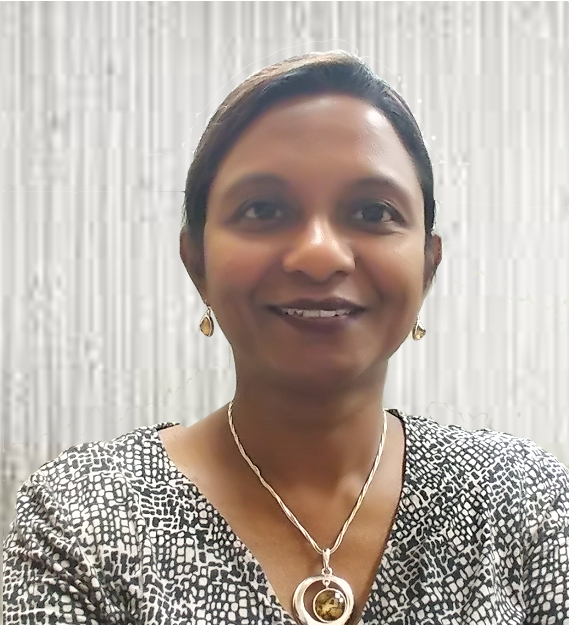
Anita Samuel, Ph.D., is the Editor-in Chief of elearn Magazine. Her areas of expertise are online learning, educational technology, and adult education. Dr. Samuel’s research focuses on continuing professional development and workplace training for healthcare professionals. She publishes articles at the intersection of medical education, adult education, and online learning. She explores online learning spaces as effective training environments for professionals.
 Denise Doig is a Senior Editor at ACM for eLearn, Ubiquity, and XRDS: Crossroads, the student magazine of the ACM, Denise began her career with the ACM as the Managing Editor of interactions. She was previously the Managing Editor at trade publisher Outsourcing Today, providing editorial and production support for three titles. She has experience in technical writing and book publicity and marketing. Denise holds a BSE from Princeton University and a certificate from the Columbia University Publishing Course. She also works as a freelance writer and copyeditor.
Denise Doig is a Senior Editor at ACM for eLearn, Ubiquity, and XRDS: Crossroads, the student magazine of the ACM, Denise began her career with the ACM as the Managing Editor of interactions. She was previously the Managing Editor at trade publisher Outsourcing Today, providing editorial and production support for three titles. She has experience in technical writing and book publicity and marketing. Denise holds a BSE from Princeton University and a certificate from the Columbia University Publishing Course. She also works as a freelance writer and copyeditor.
eLearn Magazine Editorial Board
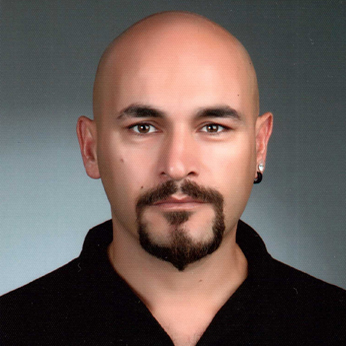 Aras Bozkurt is an academician and researcher at Anadolu University, Open Education Faculty. He received his MA and PhD degrees in Distance Education from Anadolu University. His current research interests are topics related to digital books, interactive e-books, gamification, game-based learning, research trends in distance education, online social networks, online interaction, online learning spaces, online learning communities, online community formation and online learning. He is also interested in critical theories such as connectivism, rhizomatic learning, heutagogy and emerging research paradigms such as social network analysis, sentiment analysis, and data mining.
Aras Bozkurt is an academician and researcher at Anadolu University, Open Education Faculty. He received his MA and PhD degrees in Distance Education from Anadolu University. His current research interests are topics related to digital books, interactive e-books, gamification, game-based learning, research trends in distance education, online social networks, online interaction, online learning spaces, online learning communities, online community formation and online learning. He is also interested in critical theories such as connectivism, rhizomatic learning, heutagogy and emerging research paradigms such as social network analysis, sentiment analysis, and data mining.
 Richard Butler is an award-winning L&D professional with over 20 years of experience in analysis, consulting, design, research, and technology. His expertise is highly regarded and requested, as he has contributed to various publications online and delivered webinars at work. In addition, Richard has served as a judge for several L&D award programs with Chief Learning Officer magazine and the Brandon Hall Group. He is also a reviewer for the International Review of Research in Open and Distance Learning journal. Richard holds a B.S. degree in computer science from Xavier University of Louisiana and a M.Ed. degree in information science and learning technologies from the University of Missouri-Columbia. His interests include adult education, customer experience, design thinking, gamification & game-based learning, instructional design, learning strategy, learning tools & technologies, quality assurance, social media, user experience and workplace learning.
Richard Butler is an award-winning L&D professional with over 20 years of experience in analysis, consulting, design, research, and technology. His expertise is highly regarded and requested, as he has contributed to various publications online and delivered webinars at work. In addition, Richard has served as a judge for several L&D award programs with Chief Learning Officer magazine and the Brandon Hall Group. He is also a reviewer for the International Review of Research in Open and Distance Learning journal. Richard holds a B.S. degree in computer science from Xavier University of Louisiana and a M.Ed. degree in information science and learning technologies from the University of Missouri-Columbia. His interests include adult education, customer experience, design thinking, gamification & game-based learning, instructional design, learning strategy, learning tools & technologies, quality assurance, social media, user experience and workplace learning.
 Ali Carr-Chellman is the Dean of the School of Education & Health Sciences (SEHS) at the University of Dayton. She is a graduate of Indiana University in Instructional Systems Technology and has written numerous books, articles, and chapters on topics ranging from change, diffusion of innovation, gaming, instructional design, cybercharters and online learning.
Ali Carr-Chellman is the Dean of the School of Education & Health Sciences (SEHS) at the University of Dayton. She is a graduate of Indiana University in Instructional Systems Technology and has written numerous books, articles, and chapters on topics ranging from change, diffusion of innovation, gaming, instructional design, cybercharters and online learning.
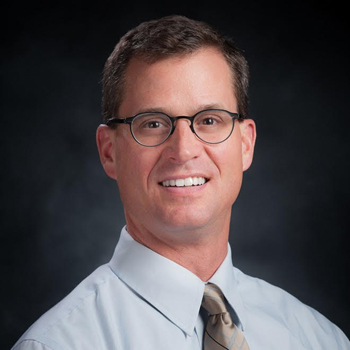 Davin Carr-Chellman is an Associate Professor of Education in the Department of Educational Administration in the School of Education and Health Sciences at the University of Dayton. His research focuses on individual, organizational, and community capacity building, especially within the framework of adult learning and agency. The specific contexts for his investigations include religious organizations, public schools, online education, and doctoral and graduate education. Davin received his Ph.D. from Penn State in Adult Education with a focus on ethical development in community based contexts. His B.A. and M.A. are in philosophy and are also from Penn State. He has 24 years of university level teaching experience and has been recognized as a dedicated educator, earning several teaching awards. He is a recipient of the University Council for Workforce and Human Resource Development Assistant Professor of the Year award. Davin is the Chair-elect of the Commission for Professors of Adult Education, is Co-Editor-in-Chief of Adult Learning and serves on the editorial board of the School Community Journal.
Davin Carr-Chellman is an Associate Professor of Education in the Department of Educational Administration in the School of Education and Health Sciences at the University of Dayton. His research focuses on individual, organizational, and community capacity building, especially within the framework of adult learning and agency. The specific contexts for his investigations include religious organizations, public schools, online education, and doctoral and graduate education. Davin received his Ph.D. from Penn State in Adult Education with a focus on ethical development in community based contexts. His B.A. and M.A. are in philosophy and are also from Penn State. He has 24 years of university level teaching experience and has been recognized as a dedicated educator, earning several teaching awards. He is a recipient of the University Council for Workforce and Human Resource Development Assistant Professor of the Year award. Davin is the Chair-elect of the Commission for Professors of Adult Education, is Co-Editor-in-Chief of Adult Learning and serves on the editorial board of the School Community Journal.
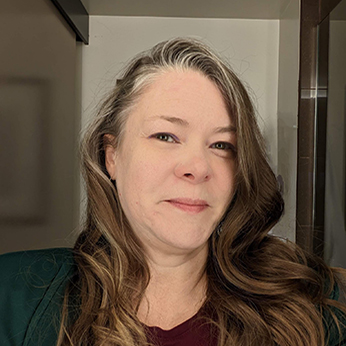 Tonia A. Dousay, Ph.D.is a K-20 educator and researcher, encompassing K-12, higher education, and continuing education. She is a Professor of Education and serves as Dean of the School of Education at the University of Alaska Anchorage. As a Google Certified Innovator with 20 years of distance learning design and education project management experience, Dr. Dousay designs and studies a variety of learning environments and activities with emergent and established technologies, focusing on instructional and multimedia design, creativity & collaboration, learner engagement, and distance learning. Her goal is to help others better design learning to foster interdisciplinary understanding and help learners take control of their own learning experiences.
Tonia A. Dousay, Ph.D.is a K-20 educator and researcher, encompassing K-12, higher education, and continuing education. She is a Professor of Education and serves as Dean of the School of Education at the University of Alaska Anchorage. As a Google Certified Innovator with 20 years of distance learning design and education project management experience, Dr. Dousay designs and studies a variety of learning environments and activities with emergent and established technologies, focusing on instructional and multimedia design, creativity & collaboration, learner engagement, and distance learning. Her goal is to help others better design learning to foster interdisciplinary understanding and help learners take control of their own learning experiences.
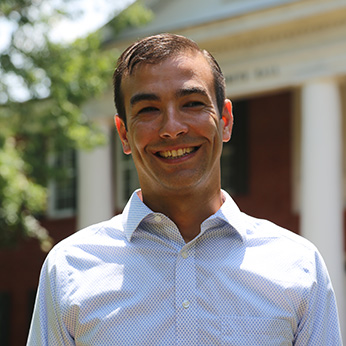 Jon Ernstberger is the Chief Academic Officer at Point University in West Point, GA. He earned his doctorate in Applied Mathematics with a Computational Concentration from NC State University in 2008 and has research interests focused on elearning, pedagogy, student success, and computational applications of mathematics. He has served at LaGrange College as Associate VPAA , Professor of Mathematics, Director of Online Instruction, and as Faculty Chair of Graduate and Adult Programs.
Jon Ernstberger is the Chief Academic Officer at Point University in West Point, GA. He earned his doctorate in Applied Mathematics with a Computational Concentration from NC State University in 2008 and has research interests focused on elearning, pedagogy, student success, and computational applications of mathematics. He has served at LaGrange College as Associate VPAA , Professor of Mathematics, Director of Online Instruction, and as Faculty Chair of Graduate and Adult Programs.
 David Guralnick holds a Ph.D. from Northwestern University, where his work synthesized concepts from the fields of computer science, instructional design, and cognitive psychology. Over the past 25 years, he has designed, with the team at Kaleidoscope Learning, simulation-based training applications; performance-support systems;, a variety of online courses for corporate, non-profit, and university audiences; mobile applications; and authoring tools. David is president of New York-based Kaleidoscope Learning; president of the International E-Learning Association (IELA) and founding chair of the International E-Learning Awards program; an Adjunct Professor at Columbia University a regular keynote speaker at international conferences; chair of the International Conference on E-Learning in the Workplace (ICELW); Editor-in-Chief of the International Journal on Advanced Corporate Learning (iJAC); and was founding chair of the American Society for Training & Development (ASTD)'s New York E-learning Special Interest Group.
David Guralnick holds a Ph.D. from Northwestern University, where his work synthesized concepts from the fields of computer science, instructional design, and cognitive psychology. Over the past 25 years, he has designed, with the team at Kaleidoscope Learning, simulation-based training applications; performance-support systems;, a variety of online courses for corporate, non-profit, and university audiences; mobile applications; and authoring tools. David is president of New York-based Kaleidoscope Learning; president of the International E-Learning Association (IELA) and founding chair of the International E-Learning Awards program; an Adjunct Professor at Columbia University a regular keynote speaker at international conferences; chair of the International Conference on E-Learning in the Workplace (ICELW); Editor-in-Chief of the International Journal on Advanced Corporate Learning (iJAC); and was founding chair of the American Society for Training & Development (ASTD)'s New York E-learning Special Interest Group.
 Zuheir N. Khlaif holds a Ph.D. in instructional design and technology. He is a distinguished scholar and researcher at An-Najah National University in Palestine. As a dedicated educator, he imparts knowledge in educational technology courses and contributes significantly to the Artificial Intelligence and Virtual Reality Research Center at the University. With a keen focus on the intersection of technology and education, his research delves into areas such as technology integration, technostress, and the application of AI in educational assessment. Khlaif has delivered more than 50 lectures and workshops about e-learning and AI in higher and public education in international and local conferences and symposium. Khlaif’s expertise extends to the publication realm, with more than 40 articles in peer-reviewed journals. His contributions not only advance academic discourse but also have practical implications for the effective use of technology in education in various context in the global south.
Zuheir N. Khlaif holds a Ph.D. in instructional design and technology. He is a distinguished scholar and researcher at An-Najah National University in Palestine. As a dedicated educator, he imparts knowledge in educational technology courses and contributes significantly to the Artificial Intelligence and Virtual Reality Research Center at the University. With a keen focus on the intersection of technology and education, his research delves into areas such as technology integration, technostress, and the application of AI in educational assessment. Khlaif has delivered more than 50 lectures and workshops about e-learning and AI in higher and public education in international and local conferences and symposium. Khlaif’s expertise extends to the publication realm, with more than 40 articles in peer-reviewed journals. His contributions not only advance academic discourse but also have practical implications for the effective use of technology in education in various context in the global south.
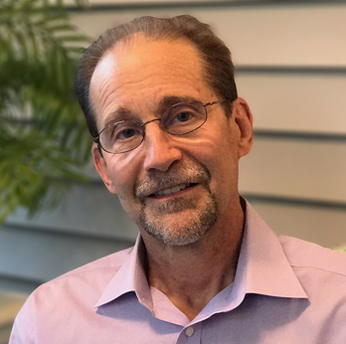 Les Howles has more than 30 years of experience in online education, eLearning design, and multimedia learning. He has held multiple positions at the University of Wisconsin-Madison including Director of Distance Education Professional Development, team leader for the Learning Solutions group and senior instructional design consultant. Throughout his career, Les has designed and taught numerous online courses and led professional teams to create innovative solutions for education and training. He has worked in diverse industries including higher education, corporate training, government, health care, K-12 and also as an independent training consultant for Howles Associates. He has authored and co-authored several articles for professional publications related to learning and technology. Les holds undergraduate degrees from Saint Edward’s University and State University of New York, Brockport. He earned his graduate degree in Educational Technology from the University of Oregon. Les has been a frequent presenter at regional, national, and international conferences. From 2014 to 2017 he served as the director for the Annual Distance Teaching & Learning Conference in Madison, WI.
Les Howles has more than 30 years of experience in online education, eLearning design, and multimedia learning. He has held multiple positions at the University of Wisconsin-Madison including Director of Distance Education Professional Development, team leader for the Learning Solutions group and senior instructional design consultant. Throughout his career, Les has designed and taught numerous online courses and led professional teams to create innovative solutions for education and training. He has worked in diverse industries including higher education, corporate training, government, health care, K-12 and also as an independent training consultant for Howles Associates. He has authored and co-authored several articles for professional publications related to learning and technology. Les holds undergraduate degrees from Saint Edward’s University and State University of New York, Brockport. He earned his graduate degree in Educational Technology from the University of Oregon. Les has been a frequent presenter at regional, national, and international conferences. From 2014 to 2017 he served as the director for the Annual Distance Teaching & Learning Conference in Madison, WI.
 Eulho Jung, Ph.D., serves as an assistant professor of medicine at the Uniformed Services University of the Health Sciences, a federal military medical school located in Bethesda, MD. His research primarily focuses on instructional design, technology, and their applications in the field of medical education. Additionally, he explores the realms of e-learning and emerging technologies across various disciplines, with a particular emphasis on developing personalized learning systems. Dr. Jung obtained his doctoral degree from Indiana University Bloomington, where he conducted extensive research for his dissertation on expertise development. His study delved into the utilization of theories from human cognition and learning science to advance the understanding of this subject.
Eulho Jung, Ph.D., serves as an assistant professor of medicine at the Uniformed Services University of the Health Sciences, a federal military medical school located in Bethesda, MD. His research primarily focuses on instructional design, technology, and their applications in the field of medical education. Additionally, he explores the realms of e-learning and emerging technologies across various disciplines, with a particular emphasis on developing personalized learning systems. Dr. Jung obtained his doctoral degree from Indiana University Bloomington, where he conducted extensive research for his dissertation on expertise development. His study delved into the utilization of theories from human cognition and learning science to advance the understanding of this subject.
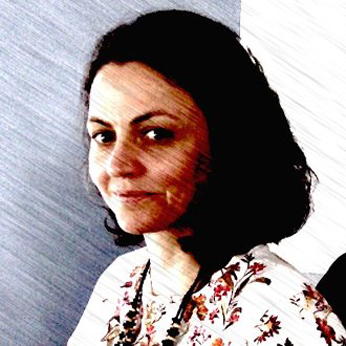 Suzan Koseoglu is an academic developer (Research and Development in Technology Enhanced Learning) at Goldsmiths College, University of London. Suzan teaches for the Postgraduate Certificate in Learning and Teaching in Higher Education program, which is designed to enhance the pedagogical practice of teaching staff and Ph.D. students at Goldsmiths. She also works on college-wide projects and initiatives related to pedagogy. Prior to working at Goldsmiths, Suzan taught completely online classes on technology and ethics, youth's use of social media, and online learning communities at the University of Minnesota, where she also earned her doctorate degree in Learning Technologies. Suzan’s most recent research focuses on open online learning, in particular the nature of open scholarship and the interplay of power and pedagogy in hashtag communities.
Suzan Koseoglu is an academic developer (Research and Development in Technology Enhanced Learning) at Goldsmiths College, University of London. Suzan teaches for the Postgraduate Certificate in Learning and Teaching in Higher Education program, which is designed to enhance the pedagogical practice of teaching staff and Ph.D. students at Goldsmiths. She also works on college-wide projects and initiatives related to pedagogy. Prior to working at Goldsmiths, Suzan taught completely online classes on technology and ethics, youth's use of social media, and online learning communities at the University of Minnesota, where she also earned her doctorate degree in Learning Technologies. Suzan’s most recent research focuses on open online learning, in particular the nature of open scholarship and the interplay of power and pedagogy in hashtag communities.
 B. Jean Mandernach, Ph.D., is Executive Director of the Center for Innovation in Research and Teaching at Grand Canyon University. Her research focuses on enhancing student learning in the online classroom through innovative instructional and assessment strategies. She explores strategies for integrating efficient online instruction in a manner that maximizes student learning, satisfaction, and engagement. In addition, she has interests in the development of effective faculty evaluation models, perception of online degrees, and faculty workload considerations. Jean received her B.S. in comprehensive psychology from the University of Nebraska at Kearney, an M.S. in experimental psychology from Western Illinois University and Ph.D. in social psychology from the University of Nebraska at Lincoln.
B. Jean Mandernach, Ph.D., is Executive Director of the Center for Innovation in Research and Teaching at Grand Canyon University. Her research focuses on enhancing student learning in the online classroom through innovative instructional and assessment strategies. She explores strategies for integrating efficient online instruction in a manner that maximizes student learning, satisfaction, and engagement. In addition, she has interests in the development of effective faculty evaluation models, perception of online degrees, and faculty workload considerations. Jean received her B.S. in comprehensive psychology from the University of Nebraska at Kearney, an M.S. in experimental psychology from Western Illinois University and Ph.D. in social psychology from the University of Nebraska at Lincoln.
 Jerusalem Merkebu, Ph.D., is an assistant professor at Uniformed Services University's (USU) Center for Health Professions Education. She received her PhD from George Mason University in Educational Psychology with a concentration in Human and Organizational Learning/Development. Her research more broadly focuses on exploring and measuring how metacognitive reflection and emotions impact vigilant decision-making processes, diagnostic reasoning, and well-being. Dr. Merkebu advises graduate students and teaches courses such as Fundamentals of Systems Theory and Advanced Learning Theories in the HPE program.
Jerusalem Merkebu, Ph.D., is an assistant professor at Uniformed Services University's (USU) Center for Health Professions Education. She received her PhD from George Mason University in Educational Psychology with a concentration in Human and Organizational Learning/Development. Her research more broadly focuses on exploring and measuring how metacognitive reflection and emotions impact vigilant decision-making processes, diagnostic reasoning, and well-being. Dr. Merkebu advises graduate students and teaches courses such as Fundamentals of Systems Theory and Advanced Learning Theories in the HPE program.
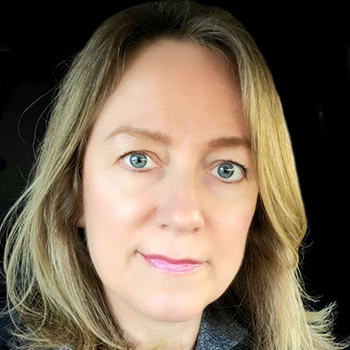 Angelica (Angel) Pazurek holds a Ph.D. in learning technologies and has over two decades of experience as an educator and learning designer in traditional and online settings in higher education, post-graduate education, and other adult learning contexts. She is currently a senior lecturer and researcher in Learning Technologies at the University of Minnesota where she teaches undergraduate courses on digital culture and learning, the philosophy of technology, learning with social media, as well as graduate courses on distance education theory, online learning design, and research methodologies for inquiry in educational technology fields. She also developed the undergraduate program in Learning Technologies at the University of Minnesota and now serves as the faculty advisor for this program. Her research interests include gender equity in educational technology fields, online teaching and learning, learner engagement in online contexts, and the use of social media for connected learning. More generally, her scholarship focuses on interpreting the human-centered nature of living and learning with technology and exploring the learner experience.
Angelica (Angel) Pazurek holds a Ph.D. in learning technologies and has over two decades of experience as an educator and learning designer in traditional and online settings in higher education, post-graduate education, and other adult learning contexts. She is currently a senior lecturer and researcher in Learning Technologies at the University of Minnesota where she teaches undergraduate courses on digital culture and learning, the philosophy of technology, learning with social media, as well as graduate courses on distance education theory, online learning design, and research methodologies for inquiry in educational technology fields. She also developed the undergraduate program in Learning Technologies at the University of Minnesota and now serves as the faculty advisor for this program. Her research interests include gender equity in educational technology fields, online teaching and learning, learner engagement in online contexts, and the use of social media for connected learning. More generally, her scholarship focuses on interpreting the human-centered nature of living and learning with technology and exploring the learner experience.
 Timothy J. Ros, Ed.D., is an experienced academic leader and educator with a diverse background in business and educational leadership. He currently serves as the School of Business Chair, MBA Program Director, and Assistant Professor of Business at McKendree University, where he has made significant contributions to curriculum development and research in digital pedagogy. Dr. Ros holds a Doctor of Education in Educational Leadership, a Master of Education in Adult Education and Lifelong Learning, and a Master in Business Administration with a focus on International Business. His extensive military career, culminating as a Command Sergeant Major in the United States Army, has equipped him with unique leadership skills and a deep commitment to education. Dr. Ros is also an active researcher with affiliations in projects focused on leveraging artificial intelligence in education and reducing transactional distance in blended graduate courses. He is a recognized leader in both academic and military communities.
Timothy J. Ros, Ed.D., is an experienced academic leader and educator with a diverse background in business and educational leadership. He currently serves as the School of Business Chair, MBA Program Director, and Assistant Professor of Business at McKendree University, where he has made significant contributions to curriculum development and research in digital pedagogy. Dr. Ros holds a Doctor of Education in Educational Leadership, a Master of Education in Adult Education and Lifelong Learning, and a Master in Business Administration with a focus on International Business. His extensive military career, culminating as a Command Sergeant Major in the United States Army, has equipped him with unique leadership skills and a deep commitment to education. Dr. Ros is also an active researcher with affiliations in projects focused on leveraging artificial intelligence in education and reducing transactional distance in blended graduate courses. He is a recognized leader in both academic and military communities.
 Steven W. Schmidt, Ph.D., is a Professor of Adult Education and the Adult Education Program Coordinator in the Department of Interdisciplinary Professions at East Carolina University, in Greenville, North Carolina. He holds Ph.D. and MS degrees in adult education from the University of Wisconsin – Milwaukee and a Bachelor of Business Administration Degree from the University of Wisconsin – Whitewater. Prior to his faculty appointment, he worked in employee training and development at Harley-Davidson Motor Company. In his teaching, research, and consulting work, Dr. Schmidt specializes in online teaching and learning and workplace training and development. He served as president of the American Association for Adult and Continuing Education in 2014 (www.aaace.org) and is the author of two books: “Organization and Administration of Adult Education Programs” and “Case Studies and Activities in Adult Education and Human Resource Development”.
Steven W. Schmidt, Ph.D., is a Professor of Adult Education and the Adult Education Program Coordinator in the Department of Interdisciplinary Professions at East Carolina University, in Greenville, North Carolina. He holds Ph.D. and MS degrees in adult education from the University of Wisconsin – Milwaukee and a Bachelor of Business Administration Degree from the University of Wisconsin – Whitewater. Prior to his faculty appointment, he worked in employee training and development at Harley-Davidson Motor Company. In his teaching, research, and consulting work, Dr. Schmidt specializes in online teaching and learning and workplace training and development. He served as president of the American Association for Adult and Continuing Education in 2014 (www.aaace.org) and is the author of two books: “Organization and Administration of Adult Education Programs” and “Case Studies and Activities in Adult Education and Human Resource Development”.
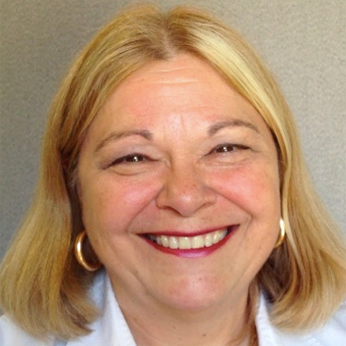 Ellen D. Wagner, Ph.D., is Vice President, Research, Hobsons. She was co-founder of the Predictive Analytics Reporting Framework, now a part of Hobsons’ Student Success business, and served as PAR’s strategy officer from its inception to its acquisition by Hobsons. She was Vice-President, Technology, of the Western Interstate Commission for Higher Education, and was Executive Director of WICHE’s Cooperative for Educational Technologies. Ellen is the former senior director of worldwide eLearning, Adobe Systems, Inc. and was senior director of worldwide education solutions for Macromedia, Inc. As Chief Learning Officer at both Informania, Inc and Viviance new Education, AG, she supervised the developments of corporate education, including online learning, learning management and competency management efforts, featuring the development of the Novell, Inc. certification programs and CBE courses and programs offered by the National Learning Network of Norway and Western Governors University. Before joining the private sector, Ellen was a tenured professor and chair of the Educational Technology program at the University of Northern Colorado, where she held a number of administrative posts, including Director of the Western Institute for Distance Education and Coordinator of Campus Instructional and Research Technologies, Academic Affairs. Ellen’s Ph.D. in learning psychology comes from the University of Colorado - Boulder. Her M.S. and B.A. degrees were earned at the University of Wisconsin – Madison.
Ellen D. Wagner, Ph.D., is Vice President, Research, Hobsons. She was co-founder of the Predictive Analytics Reporting Framework, now a part of Hobsons’ Student Success business, and served as PAR’s strategy officer from its inception to its acquisition by Hobsons. She was Vice-President, Technology, of the Western Interstate Commission for Higher Education, and was Executive Director of WICHE’s Cooperative for Educational Technologies. Ellen is the former senior director of worldwide eLearning, Adobe Systems, Inc. and was senior director of worldwide education solutions for Macromedia, Inc. As Chief Learning Officer at both Informania, Inc and Viviance new Education, AG, she supervised the developments of corporate education, including online learning, learning management and competency management efforts, featuring the development of the Novell, Inc. certification programs and CBE courses and programs offered by the National Learning Network of Norway and Western Governors University. Before joining the private sector, Ellen was a tenured professor and chair of the Educational Technology program at the University of Northern Colorado, where she held a number of administrative posts, including Director of the Western Institute for Distance Education and Coordinator of Campus Instructional and Research Technologies, Academic Affairs. Ellen’s Ph.D. in learning psychology comes from the University of Colorado - Boulder. Her M.S. and B.A. degrees were earned at the University of Wisconsin – Madison.
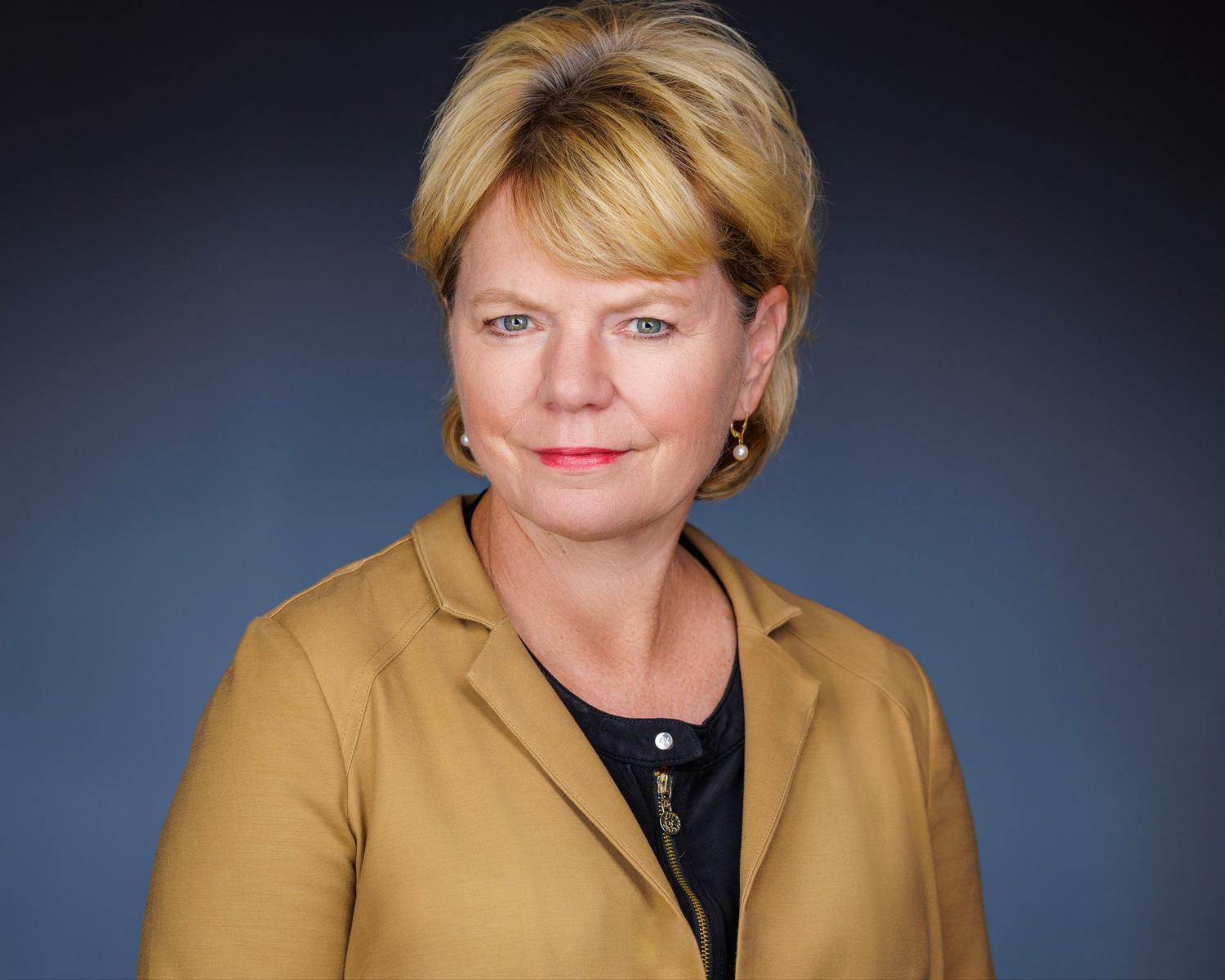 J. Heather Welzant, Ph.D., is an innovative and transformational higher education executive driven to achieving excellence in teaching and learning. She has over 20 years’ experience in higher education academic administration. Her areas of expertise include curriculum, assessment, program evaluation, faculty development, and accreditation from multiple institutions. Heather earned her Ph.D. in Education with a specialization in Training and Performance Improvement from Capella University. Her research interests are with faculty and student performance relevant to online teaching and learning. Heather currently works for Johns Hopkins University leading university wide initiatives to positively impact the student experience. Previous to that, she was the Dean of the School of Public Service and Education at Capella University. She oversaw all aspects of Education, Human Services, Social Work, and Public Service programs. Before joining Capella University, she was Vice President of Academic Affairs for online programs at Argosy University responsible for over 5,000 students and 600 faculty. Prior to Argosy University, Heather was the Associate Vice Provost, Academic Performance Improvement at the University of Maryland University College where she developed quality and continuous improvement processes for the university’s newly created competency-based programs.
J. Heather Welzant, Ph.D., is an innovative and transformational higher education executive driven to achieving excellence in teaching and learning. She has over 20 years’ experience in higher education academic administration. Her areas of expertise include curriculum, assessment, program evaluation, faculty development, and accreditation from multiple institutions. Heather earned her Ph.D. in Education with a specialization in Training and Performance Improvement from Capella University. Her research interests are with faculty and student performance relevant to online teaching and learning. Heather currently works for Johns Hopkins University leading university wide initiatives to positively impact the student experience. Previous to that, she was the Dean of the School of Public Service and Education at Capella University. She oversaw all aspects of Education, Human Services, Social Work, and Public Service programs. Before joining Capella University, she was Vice President of Academic Affairs for online programs at Argosy University responsible for over 5,000 students and 600 faculty. Prior to Argosy University, Heather was the Associate Vice Provost, Academic Performance Improvement at the University of Maryland University College where she developed quality and continuous improvement processes for the university’s newly created competency-based programs.
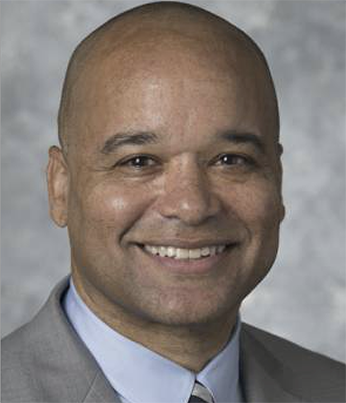 Doug Wilson, Ph.D., serves as Assistant Professor, Learning Technologies at George Mason University where he provides instruction to graduate students in the Learning, Design, and Technology (LDT) Program. Before joining George Mason, Dr. Wilson taught graduate-level instructional design and educational technology courses online in the Higher Education and Learning Technologies program at Texas A&M University, Commerce. His teaching experience also includes more than 10-years of service as a professor of journalism and basic writing at Richland College. Dr. Wilson’s credentials include a PH.D. in Learning, Design, & Technology from The Pennsylvania State University, a Master of Science in Journalism from the Columbia University Graduate School of Journalism, and a Bachelor of Science in Microbiology from Xavier University of Louisiana. Dr. Wilson’s current research interests include augmented and virtual reality, learning experience design, instructional design, and online teaching and learning. His work has been published in several peer-reviewed academic journals and conference proceedings. Prior to becoming an academic, Dr. Wilson worked more than a decade as a major market television news reporter.
Doug Wilson, Ph.D., serves as Assistant Professor, Learning Technologies at George Mason University where he provides instruction to graduate students in the Learning, Design, and Technology (LDT) Program. Before joining George Mason, Dr. Wilson taught graduate-level instructional design and educational technology courses online in the Higher Education and Learning Technologies program at Texas A&M University, Commerce. His teaching experience also includes more than 10-years of service as a professor of journalism and basic writing at Richland College. Dr. Wilson’s credentials include a PH.D. in Learning, Design, & Technology from The Pennsylvania State University, a Master of Science in Journalism from the Columbia University Graduate School of Journalism, and a Bachelor of Science in Microbiology from Xavier University of Louisiana. Dr. Wilson’s current research interests include augmented and virtual reality, learning experience design, instructional design, and online teaching and learning. His work has been published in several peer-reviewed academic journals and conference proceedings. Prior to becoming an academic, Dr. Wilson worked more than a decade as a major market television news reporter.